TIGER TIMES






































































































































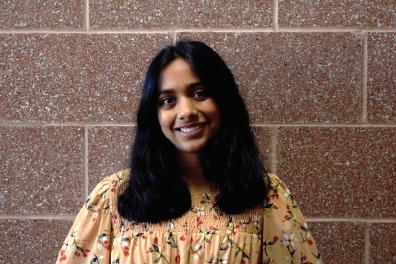












 Jakob Polly pollyjak000@hsestudents.org
Jakob Polly pollyjak000@hsestudents.org
The Noblesville and Fishers public libraries, constructed in 1986 and 1993 respectively, have long served Hamilton County and its constituents. Serving over 94,000 card holders and 390,000 yearly visitors, the Hamilton East Public Library (HEPL) has long aided avid readers, artists, musicians and researchers in their literary, artistic and academic pursuits. To accommodate a growing Hamilton County that expects a population of 528,000 by 2050, both HEPL locations have begun construction on major improvements and renovations.
e renovations focus on improving tra c ow, providing better access to services and increasing the amount of green space available to patrons.
“One of our big goals [with the renovations] is accessibility,” HEPL Director of Public Services Amber Wright said. “We’re making it safer for drivers and pedestrians to interact in our spaces.”
To further help facilitate improved access to the libraries, all doors and elevators are being upgraded to be in full compliance with the Americans with Disabilities Act (ADA), accommodating those with physical disabilities.
Although the facilities were ADA compliant upon initial completion of the libraries, the standards have since been updated, requiring refurbishments.
“I’m really excited that this library system is willing to make the changes needed to make it a more accessible space to all members of our community,” Wright said.
In making the facilities more accessible, the infrastructure and interior of the two libraries are also getting major overhauls, including new heating, ventilation and air conditioning (HVAC) units, lighting systems and carpets.
“Some of the big things we’re working on is infrastructure
because we want to be good stewards of taxpayers’ money,” Wright said. “ at means keeping our stu in good working order.”
Included in the renovations at the Noblesville location is an update to the local history room, candidly named the ‘Indiana Room.’ As one of those involved in the redesign of the Indiana Room, HEPL Chief Impact O cer John Helling feels that the work being done on the Indiana room is incredibly important.
“We are trying to add services that are more in line with what people today expect,” Helling said. “In other words, not just books, charts and maps, but interactive exhibits where you
can come and leave your own digital history – record stories that [would otherwise be lost] when people pass away.”
In addition to the interior, the exteriors of both locations are also getting major redesigns, including new landscaping, outdoor seating and bicycle racks, and for the Fishers location, an entirely new entrance.

“[In the Fishers library], we are renovating the lower level, so there will be a new front door,” Wright said. “Essentially the front door… is going to be ipped.”
Although the project is still moving along, HEPL has yet to release a rm date of completion, but sta remains con dent that it will be completed before the end of 2023.



“We have general ideas [as to when construction will nish], but this being the post-COVID era, we’re dealing with supply chain issues – stu that doesn’t happen according to plan,” Helling said.
For many regular patrons of the library, such as senior Laynie Cheek, this delay is easy to ignore given what lies in store once construction ceases.

“[ e renovations] are going to be really bene cial for everyone going there,” Cheek said. “I think they’re making the right decision.”

To Helling, the bene ts of the library far outweigh any costs incurred through renovations.
“ e library is the last place in the United States where you can
come in for free, access anything that’s in the building, you’re not expected to pay any money, and the sta will help you no matter what your question is,” Helling said.
Both Wright and Helling stressed that library sta , given however odd a request, will aid you tirelessly.
“No matter [your question], we will do our level best to meet your information need,” Helling said. “ at’s anything from a kid who wants to know about t-rexes, to someone who just lost their job and needs help creating a new resume… To me it’s awesome that that kind of service exists and we can do that everyday for people.”
Similarly to Helling, Wright feels as though libraries are an essential part of the community.
“ ere’s a place for you here,” Wright said. “[ e library] is a place where you can exist for free and you don’t get that anywhere else.”
On Oct. 24, three people were killed in a mass shooting at Central Visual and Performing Arts High School in St. Louis, Missouri. e gunman, a former student, entered the building through a side entryway and opened re on the fourth oor, killing a student and teacher before being shot by police.
According to CNN, there have been at least 53 school shootings at K-12 schools in the U.S. this year, a total larger than in all of 2021. An event that has become even more frequent since 2018; the year that created a lasting fear in senior Mira Athmarao’s mind.
“I vividly remember being in my seventh grade social studies class when [Noblesville High School] got the news about the shooting [at Noblesville West Middle School], and I was frantically texting my friend there, [to see if they] would be okay,” Athmarao said. “Ever since that day, every classroom I go into, [I am thinking], ‘what’s the best escape route?’ at constantly runs through my mind.”
For junior Hannah Decaudin, the Noblesville West shooting also le a lingering fear in her mind. Over time, her fear has shrunk, and she believes FHS has done well at preventing a similar situation from happening.
“I feel like teachers and the school are very open about the protections they take,” Decaudin said. “We have all the signs that show what to do in each stage
of [security] in the school. Teachers are made to lock doors in case of emergency, and they make sure to not have students prop the doors open [as well as] keeping outside doors locked during the school day.”
Fishers follows an Indiana state requirement to conduct an active shooter drill once a semester. However, it is a drill that Athmarao does not see as bene cial to student safety.
“I think that the drill itself is kind of useless because it [might not] be a random person that’s forcing their way in,” Athmarao said. “I believe if there was a shooter, then [they] would be from our school, because that’s what we’ve seen in cases of other public shootings. So teaching the shooter how we plan to avoid their rampage is [not] the best idea to go about it.”






Decaudin nds the A.L.I.C.E. (Alert, Lockdown, Inform, Counter, Evacuate) drill to be important in preparing for an unexpected person from outside the building.

“It’s important to know what to do in case of an intruder and especially to know the best way to exit and nd safety,” Decaudin said. “And if that’s not possible, how to defend yourself.”



e school district utilizes an app called ‘HSE Report It!’ that allows students, sta and community members to send anonymous information regarding safety concerns. According to Assistant Principal Chrissie Sturgill, it is an important communicative platform.
“We get such good information,” Sturgill said. ”As long as students continue to look out for one another, that is going to be…the biggest thing throughout the country.
ings that have stopped major things from happening are kids reporting things that are happening, and our kids are doing a great job of letting us know anything that they have of concern.”
While some schools have aimed to create a safer environment by requiring students to wear clear backpacks, Decaudin and Athmarao agree that would be an invasion of privacy. Sturgill says this approach to safety has not proven to be successful.
“[In] the St. Louis shooting, that person did not go to that school,“ Sturgill said. “ e one in Texas, the kid did not go to that school. e one in Florida, the person came into the school. If we were to have clear backpacks, that still doesn’t stop any of those three shootings right there.”
While the ideas on how to keep a school safe may di er from individual to individual, Sturgill presents a more humane way to try and prevent a more frequent tragedy from occurring.
“I would encourage students to just look out for each other and treat each other with kindness,” Sturgill said. “If we could do that at Fishers High School, if we can make that our culture, I think that will help, too.”

 Lainey Akins akinslai000@hsestudents.org
Lainey Akins akinslai000@hsestudents.org

National Honor Society (NHS) has begun their fundraising project called ‘No Shave November,’ which is dedicated to collecting money for Indiana’s Center for Prevention of Youth Abuse and Suicide. e members do a variety of things to help collect money. Spanish teacher Elizabeth Schulhof is the sponsor of NHS and is the main contributor to how ‘No Shave November’ is planned and organized.
“You’re put into teams with teachers and each team is supposed to raise as much money as possible,” Schulhof said. “It’s sort of a tournament style to see which team can raise the most money. At the end, we count it all up and see how much money we raised.”
e teams typically consist of ve to six NHS students, alongside a male and female teacher. Teachers grow beards to raise money, while the students collect money in buckets that are kept at their desk. Junior Jennifer Jo became a member of NHS this year, making this her rst time participating in ‘No Shave November’.
“[NHS] makes each student pick up a bucket and then you take that bucket and you start collecting money,” Jo said. “ ere can be various ways to collect money. Our group was thinking of selling baked goods at sports games.”
e teams brainstorm ways to meet their fundraising goals, and each team’s strategies are di erent. is year, NHS is focusing on incorporating the students in the creative process. “I love seeing the creativity that
some of the teachers and the students have for raising money,” Schulhof said. “I remember one teacher a few years ago told his kids that if he raised a certain amount of money, he would do cartwheels all the way down the hallway.”
Along with the increase in the involvement of the NHS students, they are also utilizing other methods of fundraising. Senior Gri n Chesebrough is co-president of NHS and is working to help improve ‘No Shave November.’
“We’re o ering people to use certain things like or selling cookies on their own,” Chesebrough said. “ roughout the month, we’re gonna be trying to give more opportunities to our members so that they can be more creative [and it is a] more fun experience for all people involved.”
Previously NHS students were required to turn in their collected donations each day, but the club has decided to transition to weekly turn-ins instead. Schulhof hopes to collect even more money than last year.
“I think last year we raised somewhere around $11,000, so I would love to surpass that and possibly get $12,000 or even more,” Schulhof said.


e money that is going to Indiana’s Center for Prevention of Youth Abuse and Suicide, will help educate people on how to recognize signs of abuse to prevent dangerous situations from fully forming.
“We wanted to do something that was obviously related to youth, rather than supporting an
adult because [the students at our school] are our youth,” Schulhof said.
e ‘Riley Dance Marathon’ club is dedicated to fundraising for Riley hospitals, so Schulhof believed it was important to donate to other organizations as well.

“We didn’t want to do anything related to Riley because we feel like Riley gets a lot of attention, not just in our school, but in many schools,” Schulhof said. “ e other reason why we selected this particular organization is because so many youth now a days are struggling with depression and are at higher risk of suicide, so we felt like that was a good cause to support.”
While the NHS students’ main task is fundraising, leaders of NHS are working to make sure every member can be involved in helping the cause through di erent e orts.
“We try to make it so that even if you don’t have money to donate or if you aren’t someone who loves begging your friends for money, there’s opportunities for you to actually be involved through things like counting money a er school or through selling things,” Chesebrough said.
‘No Shave November’ is an ideal example of what NHS stands for and what their mission ultimately is. At the end of the day, the organization serves to help others without anything in return to ensure people receive the help and resources they need.
“I’m most excited about helping the cause for suicide prevention, [and] also the joy that comes out of raising money for a good cause,” Jo said.
Most residents in the district over the age of 18 either go to the ballots on Nov. 8 or ll out an absentee ballot to vote for the school board member they believe should win. For the past couple of weeks, students, parents and teachers alike have been witnessing the campaigns to help them form an idea of who they see as the best t to make decisions for HSE schools.
“ e school board basically decides what policies go on with the school district,” freshman Grace Pedersen said. “When you follow along with all of the candidate’s intentions, it really puts into perspective that it does truly matter who you’re voting for or will be voted in.”
School board members oversee the district and make decisions and policies that they feel need to be implemented to make the school environment more e cient. is can include redistricting and the tax referendum.
Due to the candidates’ varied views, there has been more involvement from the student body compared to previous years. Both junior Justin Zeisig and Pedersen also attribute the increase in involvement to students growing up and becoming more aware of their community.
“[ e school board elections] really got my attention just because of all the diversity [within candidates],” Pedersen
said. “Now that I’m older and in high school, I can understand the e ects that these choices [have].”
e political nature and factions of this years election caught the attention of most people who will be a ected by the results which is another reason there have been more eyes on it this year.
“ e world is being a bit more divided today than it has been in decades,” Pedersen said. “Some candidates have strong [opinions] on what should and shouldn’t be taught at school, as well as certain actions that should and shouldn’t be done. Candidates want the best thing for students, so addressing these things really get put into play.”
LarryInFishers blogger Larry Lannan, who has been a journalist for 13 years and has been running his blog for 11 years, also recognizes the endorsements to further push the candidates to engrave politics into their campaigns.
“We’ve seen, for example, the Hamilton County Republican Party backing a slate of candidates,” Lannan said. “ e school board elections in Indiana are nonpartisan, so that’s unusual. Not unheard of, but unusual for one of the political parties to get involved in the school board election.”

e political nature of a school board election could potentially become a part of the process, formally. e
state legislator had proposed to switch from a nonpartisan school board election to a partisan one in January. is would mean candidates would have to identify with a political party, whether it is Democrat, Republican or Independent. e proposal did not pass but can come back in the future.
“I still think nonpartisan elections work best for school boards because that has a very special meaning to a local community [in] how the school is run,” Lannan said. “ e school systems are the center of not just education, but a number of other situations like the extracurricular activities.”
ere are both bene ts and disadvantages to a partisan or even heavily political nonpartisan debate. Zeisig recognized that due to the nature of the election, it being for the school, it should not be as aggressive as he believes it is playing out to be. On the other hand, he was able to understand why some people would want politics tied into the election.





“I think [political school board elections] de nitely brings some bias in the voter’s eyes,” Zeisig said.
“[ e voters] could agree with most of their points, but if they’re a Republican and the [candidate identi es] as a Democrat then it could be a big deal breaker for the voter. I feel like a pro might be you’re probably guaranteed to get some
people on your side that agree with that political party that you’re allying with.”











Politics in school board elections can intensify interactions between voters who side with certain candidates or their political beliefs. Zeisig noticed that there was an increased amount of ghts on social media platforms between voters who supported di erent candidates endorsed by di erent organizations.


Another reason for the divide between candidates and frustrations from the voter’s side is some candidates’ willingness to participate in open-ended discussions. Lannan believes that the reason candidates have turned down open-ended discussions is that they lose control over their campaign and message since any question can be asked, whether they are prepared for it or not. “I think that people that are speaking to the public show that they’re more quali ed to be on the school board,” Zeisig said. “ e school board meetings are very open to the public. ere is a public microphone that people can walk up to and ask questions. at’s one of the biggest parts of being on the school board is being open to the community’s concerns.”
Both Zeisig and Pedersen believe that the divide between candidates and voters are enough
reason to put an end to politics within school board elections. Pedersen more speci cally believes that it should stay unbiased due to the fact that the school board candidates should make decisions based on what would be best for the students as a whole and not just based on political ideologies.
“I feel we should be talking about politics in school to understand how our country works, but I personally don’t think that it should be forced upon our school for either side,” Zeisig said. “I feel like we should be able to make our own opinions on politics in general without the school board intervening.”

Lannan believes that one good way to avoid political propaganda is by visiting each of the candidates’ websites or social media pages to see what their top priorities are.
“I think people need to just kind of de ect if they’re going more le or right, and truly just think about the person themselves and what e ects will they have on the school districts,” Pedersen said.

“Researching [what] they are going to do and then truly thinking about if that does happen to the school district, will that be good or bad? You just need to have open-minded thinking.”
Many people were on the edge

of their seats to see how the results would turn out a er the votes were cast on Nov. 8, due to the vast di erences between this election compared to previous ones. ose endorsed by Fishers One, Juanita Albright, Ben Orr, Dawn Lang and Ti any Pascoe all ended up winning the school board
Pedersenelection.believes that even if students are ineligible to vote, they should still stay up to date with the elections and do their research. Eventually, they will be able to vote and their understanding of the elections will be detrimental to making an informed decision.
Lannan puts extra emphasis on those who are able to vote to register and evaluate the candidates with credible resources.
“I do believe if you’re registered, you should vote and it’s important that you take a few moments and evaluate these candidates and which ones align with your views of how the school should be run in the future,” Lannan said. “What’s going on with the school budget? What’s going to happen with redistricting? What’s going to happen in the future as far as who the superintendent will be? All these are issues that are under the school board and you should consider all those situations as you evaluate these school board candidates.”

Ameera Tai taiame000@hsestudents.org
Posted around the building, on the FHS website, and repeated daily in the announcements, Tigers are constantly reminded to ‘have pride, show character and build tradition.’ The belief statement emphasizes the importance of community within the school.
sanctioned activities. Junior class officer Lily Sharp believes these events generate excitement and motivate students to become more active members in the school.
Students in SAFE host a civic action workshop on Feb. 23. Building a close community helps clubs like SAFE work together to reach their higher goals. Photo used with permission of Renee Isom.

To sophomore Virginia Hernandez, fostering respect, integrity and perseverance are major goals set to create a positive learning experience for students. The school website states its core purpose as “‘[preparing] our students as lifelong learners who positively impact an ever-changing world.’”
“It gives [students and staff] a sense of belonging and being considered family,” Hernandez said.
According to the school website, the message aims to promote growth amongst students both academically and emotionally. Senior academic dean Nawla Williams recalls how when crafting the mission statement, the teachers, students and stakeholders looking at it wanted to focus on equality and the importance of a respectful environment.
“Belonging is huge for us,” Williams said. “If you don’t have a sense that you belong in this building, it’s hard to concentrate on [classes] when you are worried about other things that make you uncomfortable.”
A method to encourage community is through school
“We have spirit days and spirit leaders,” Sharp said. “They all make an effort to try and get people to go to the games.”
Through ways like showing school spirit, FHS expresses their strong value in community, as they believe it will build the acceptance of students. According to the Hamilton Southeastern School’s Non-Discrimination & Non-Harassment Statement, acceptance between students and staff allows a better opportunity to succeed.
By implementing policies disapproving of discriminatory behaviors, the district attempts to create a safe learning space.
“You’ve got to feel safe and connected to people in the building,” Williams said. “If you have safety and belonging, then you can concentrate on things that are more executive.”
Additionally, there are some, such as Hernandez, who feel impacted by these beliefs. She shares how she has previously attended four other schools, but has felt this is the only one that cares about her well being.
“I think this school does a really good job at maintaining a healthy environment,” Hernandez said. “Especially because I come from a place
“Each student deserves a school where educators teach inclusively and dismantle barriers that prohibit students from their authentic selves,” the FHS website said.
where those things aren’t really enforced enough.”
Providing adequate support and accountability within students as they move towards graduation is how Williams believes teachers are able to build community. She mentioned how employability classes encourage students and teachers to talk about serious topics, which further helps bring everyone together.
“It’s nice to know that we have a staff that is making an effort to try and incorporate [inclusive] into our school,” Sharp said.
However, there are some who feel as though efforts to improve the school are offset by academic competition. Sharp believes that the deemed importance of academic achievements,
like SAT scores and grades, can cause students to value appearance to others over the intended message of promoting acceptance.
“I think it is good that we have [mission statements] in our handbook and that students are aware we have them,” Sharp said. “[But] sometimes they aren’t being enforced in the best way.”
Additionally, with the widespread use of social media, hateful speech is easier to spread and can be amplified. According to the National Bullying Prevention Center, there has been an increase in bullying by nearly 20% since 2007.
“People can just be so very hateful [and it] kind of breaks
apart [the] community,” Sharp said.
The impacts of an accepting student body can easily be countered by those who choose to create a negative environment and ignore action that should be taken to continue improving the school. Efforts taken by administration and student government leaders allow for improvement that works towards accomplishing the goals mentioned.
“I feel like there’s a lot of things that go unmentioned and [no one] takes any action to stop what they’re seeing,” Sharp said. “And if we really, truly want to act as a community for our school, we need to take action. If we see something, say something,”

4
Dunkin’


Handel’s
As the holidays approach, many students are having changes occur in the schedule, speci cally their work schedule. High school students tend to be busy around the holiday months because of the family events, nals and personal happenings that the season entails.
While the Board of Certi ed Safety Professionals suggests that employment rates are higher during the holidays, this does not necessarily re ect in the high school student body. Some students are not willing to give up the limited family time that is what makes November and December special.

“I feel like when it comes to the holidays and jobs, I want to be more with my family, rather than working,” senior Natalie Barker, who works at 4 Paws Lodge, said. “I can’t be at two places at once, as much as I enjoy the neat environment and enjoy working with dogs.”
Barker currently works ve times a week, but plans to drop two of those days because of her holiday schedule in the coming months.
“I feel like my boss isn’t a family person, “ Barker said. “I feel like they don’t understand how my family is super familyoriented, and I have noticed that a lot of people aren’t like that,”
While Barker was hopeful that weather changes would not a ect her schedule too drastically, other students felt di erently.
“I hope the weather a ects my schedule because I don’t want to go to work,” junior Grace Fox said.
Connor Razo, a senior, plans to dedicate his paychecks to preparing for holiday gi s.

“I would 100% work more to buy gi s for family and friends,” Razo said. “ e issue right now, is that no matter how much I ask [management] to schedule me, they just barely schedule me.”
Meanwhile, Easton Cummings, a sophomore, and Randa Nouk, a junior, said that they were not concerned about not making money for gi s this season.
“I’m not concerned about money for gi s, because I don’t really pay for them,” Nouk, a currently unemployed junior, said. “However, I do want the money for college and maybe a car. [I want money for] more independence, overall, honestly.”
“I have a lot of money saved up from the last couple months,” Cummings, who has worked at Dunkin’ Donuts for four months, said. “I’m not as concerned about the money for the gi s, rather than the gi s themselves.”
While the holidays don’t actively a ect the schedules of high schoolers, jobs around the holidays do cause a lot of deliberation and pre-planning that not every other activity outside of school does.
wilfoais000@hsestudents.org
Anastasia, the musical based on the 21st Century Fox film, came to Indianapolis from Oct. 18-23, which gave Hoosiers the chance to see this Broadway production.
“I really love the storyline and a lot of the songs are really iconic,” said sophomore Adelaide Akins, who has said she’s taken an active part in theatre since fifth grade.
Akins is currently slotted to play Paulette in Fishers High School’s upcoming musical, ‘Legally Blonde.’ She expressed her wish to perform in Anastasia one day.
“I don’t really have a specific role in mind that would be my favorite, but I honestly think that even being in the chorus for that show would be really fun,” said Akins.
Anastasia has featured in many big cities since its introduction to Broadway in 2017. Junior Madelyn Garber planned on seeing it with her family over fall break. According to Garber, Indiana is practically in the middle of nowhere, so nobody would ever come here.
“I don’t think that anybody would ever think first ‘Let’s go to Indiana!’ I just think that’s kind of remarkable,” she said.
The movie that this musical was based on, which hit
theaters in 1997, features many magical moments, most notably: The character Anya’s dream sequence in “Once Upon a December.” Translating onscreen magic to a live performance would be a challenge for any production. The audience’s suspension of belief could depend on how the presentation is managed.
“I want it to flow, if I’m going to watch it live,” said Garber. “If they make it so that it flows better and props just ‘magically appear’ on the stage I’ll find it more interesting and I’ll be able to focus on the characters.”
While not frequent, there are some big changes between the movie and the musical. In the preBroadway performance, Anya’s dress was different from the original movie version. When it hit Broadway, it was changed again to make it resemble the movie version more closely. The musical has already made changes regarding the antagonist and will possibly make more.

“I’m excited to see the music, and to see how they portray the characters differently, because you can’t make everything exactly the same because it’s live
versus tv,” said Garber. “So, I think it’ll be really interesting to see the differences in that.”
Throughout the story there are many different scene changes. The characters travel all the way from St. Petersburg, Russia to Paris, France. Assumably, the change in scenes would be very difficult, but freshman Lucia Camacho thinks they were one of the most interesting parts.
“I just wanted to see the sets… and how the actors changed in and out of their costumes really easily and how fast they were and how they could memorize choreography,” she said.
Camacho saw the production over fall break on Oct. 17 and was excited to see her first musical in person.
“It felt really cool,” she said. “It felt as if I was in the moment.”
1. Junior Talia Mahmoud smiles while drawing her display to represent Cultural Connections club on Sept. 11 in the CCA. 2. NHS co-president senior Gri n Chesebrough draws a design on the window. Photos by Emerson Elledge.



Leadership, according to the Oxford dictionary, is the action of leading a group of people or an organization. Club presidents all exemplify this in one way or another through the time they put into ensuring that their club runs smoothly.
ASL Club President senior Capritta Ray opened up regarding how she felt about the workload for her club, and how she is able to handle it.
“I plan the agenda for every meeting, and I’m so thankful for my vice president and secretary who help execute those plans,” Ray said.
Ray discussed what inspired her to be the ASL Club president for the past two years.
“I have always had a huge motivation to educate [people] about Deaf oppression and share the experiences I’ve had with two deaf parents,” Ray said. “When I heard about the Fishers ASL club, I couldn’t pass up the opportunity.”

GSA Club president junior Silas Cloud-Tozer felt that he made a positive impact on the members of the club.
“ e fact that people get excited to come to GSA and o en look forward to it brings
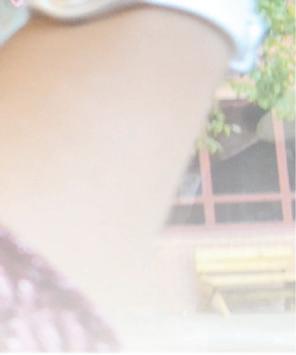

me joy,” Cloud-Tozer said. “[ at] makes me feel as if they believe I’m doing a good job.” Cloud-Tozer joined GSA so he can surround himself with people that he can relate to.

“For most of my life I’ve been a member of the LGBTQ+ community,” Cloud-Tozer said.
“We weren’t very organized so a lot of things that needed to get done for our events happened at the last minute which was stressful,” Mahmoud said. “But now, it’s a lot more manageable since we have other o cers and other leaders to help with the workload. We also now know what to expect with the workload and can plan accordingly.”
“I saw GSA as a safe space for people such as myself.”
Cloud-Tozer enjoys leading and feels he is skilled at being a leader.
“I wanted our club to leave an impact,” Cloud-Tozer said. “I decided that I was willing to take the responsibility to voice our thoughts on various LGBTQ+ related news stories.”
Cultural Connections Club copresident junior Talia Mahmoud elaborates on the struggle of running a new club with little to no experience.




Outside of Cultural Connections Club, Mahmoud also participates in other extracurriculars like Key Club, HOSA, Democrats Club, National Honors Society and Muslim Student Association. Mahmoud talks about how she plans out her month by being involved in all of these activities.
“I keep all my upcoming meeting dates on a calendar on my phone,” Mahmoud said. “I join the Remind of all my clubs so I can get noti ed with any updates.”
Mahmoud promoted an event on Nov. 17, from 3-6 p.m., in the media center.
“Cultural Connections Club is having a workshop,” Mahmoud said, “It’s for anyone looking to create a poster or help out with planning for the international fair.”

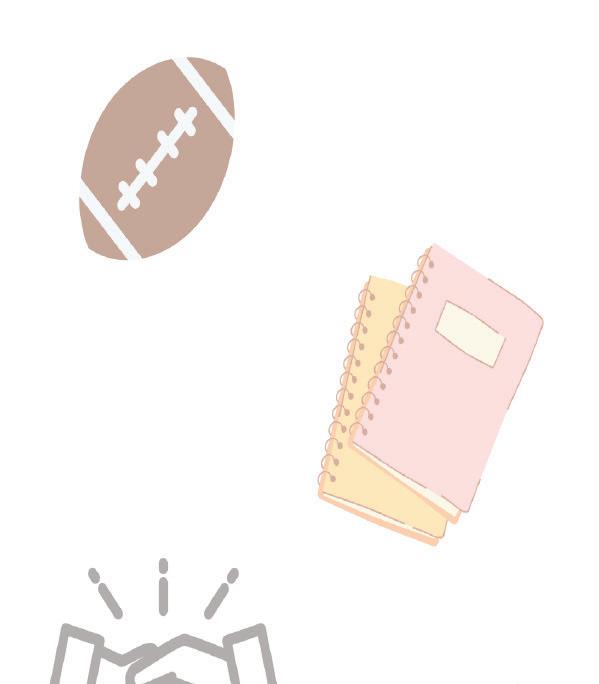
At Fishers High School, there consists a wide variety of classes available for students to take. From American Experience down to Zoology, there are plenty of classes that o er unique environments and opportunities for learning.
With over one hundred classes to choose from, students can take classes that extend to all kinds of college and career paths. For those who want to study lm, are lm junkies or simply enjoy watching movies, Film Literature is a safe choice.
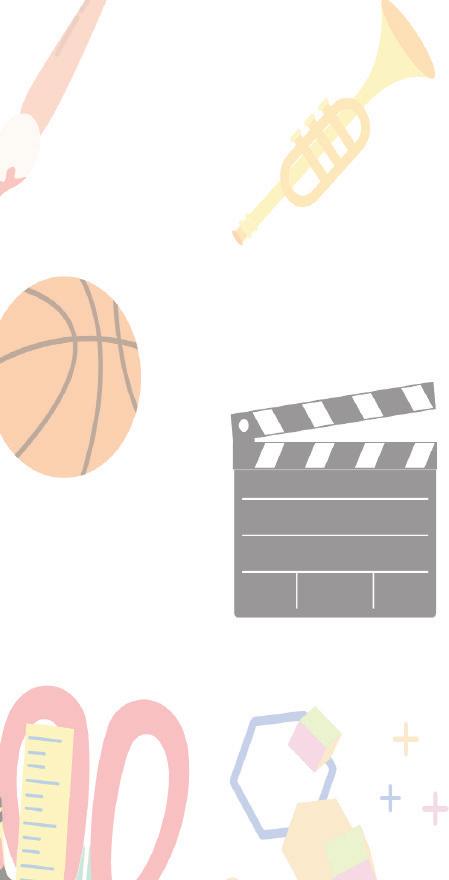

“We have watched lms like the Dark Knight, Jaws, and Jurassic World,” junior Connor Egge said. “ ey were classics I had not seen, and they were very fun to watch.”
One aspect Film Literature explores is the details behind a lm’s composition. At times, these ideas are more abstract than at rst glance, an example being shape theory.
“We have looked at shapes, and how the human eye sees those shapes,” Egge said. “For example, elements such as a corridor or the golden ratio, ideas you would not notice unless you took the course.”
Adding onto that idea, as senior Sandi Bramlett explains, there is a story behind every detail.
“ ere are a lot of elements that make a story, a story,” Bramlett said. “ ere is a story in the way the camera moves, the way the lighting is set up, the characters’ face(s) and so on.”
Along with studying lm, the course also dives into the practice of movie-making, which both Egge and Bramlett found to be exciting.
“We are also creating our own lm that we get to share,” Egge said. “It gives you a sense of how huge movie productions are made.”
Although subject to change, instead of a standardized test for the nal exam, the course’s nal consisted of producing a short lm, directed by and featuring students taking the class.


“Our nal exam was to create a sixty second movie,” Bramlett said. “I helped write the lm, and I also worked on editing it and capturing it. It was honestly pretty fun.”
At the upperclassmen level, the list of available courses contains plenty of challenging classes to accidentally choose from. For students concerned with di culty or commitment, according to Bramlett, the class is not one to stress over.
“ e assignments were very di erent from my other classes,” Bramlett said. “I never had a test or quiz to take. We did little writing assignments, but other than that, we mainly watched lms and talked about them, and worked on our movie.”
Another unique class o ered is eory of Knowledge, a class like no other found in the school. As the course description states, eory of Knowledge (TOK) is a thought-provoking course that, through a list of thirty ve

questions, guides students to better understand themselves and the world around them.


“ eory of Knowledge is about how we know what we know,” senior James Wilkes said. “A lot of our assignments are based around how we gain knowledge, and the ve areas of knowledge: math, history, art, and natural and human sciences.”
As a current student, Wilkes explained how the class sets itself apart from the others he is taking. “TOK is structured very di erently from other classes,” Wilkes said. “It is very free, and Mr. Seland, the teacher, gives assignments that are broad, which we interpret however we want.”
Similar to Film Literature, eory of Knowledge di ers in format and workload compared to other classes.
“He also gives fun assignments,” Wilkes said. “For example, we did a show and tell which connected back to a TOK question, but it was also an interesting way to learn more about our classmates.” Wilkes said.
TOK is a required course for International Baccalaureate students, a rigorous preuniversity course of studies. However, Wilkes personally found the class to be on the contrary.
“TOK is actually the easiest class that I have taken in my four years of high school,” Wilkes said. “It is because of the freedom the course gives; we are unrestrained in what we can do.”
s the last fall breeze gets closer and the time of anksgiving rolls around, many start realizing the importance of gratitude in their lives. Healthline, a platform created for the public to share health related experiences, states that during fall, reduced sunlight is one of the causes of decreased levels of serotonin and increased levels of melatonin, which have detrimental e ects on mental health for many. Both serotonin and melatonin are hormones responsible for happiness and sleepiness respectively. Change in levels of both the hormones usually tends to begin a search for things that make people happy.
Di erent individuals have various ways of putting what they think gratitude is into words. AP Psychology teacher Matthew Follman believes that it is important for humans to give and receive recognition.
“[Receiving gratitude compliments] a validation in human behavior,” Follman said.
Dr. Martin E. P. Seligman, a psychologist at University of Pennsylvania, conducted a study that showed increased happiness scores a er writing appreciation letters. e e ects of this experiment lasted for a month. Junior Gracelynn Hyman believes that being grateful and showcasing that to people around is important. Gratitude helps people on both sides: the one expressing it and the one receiving it.
“It not only makes you a happier person, but it makes everyone around you feel appreciated,” Hyman said. “When you do say [that you’re thankful] to them, it means more than you would ever even imagine.”
Junior Vani Sharma believes that receiving compliments out of appreciation helps boost con dence.
“I think gratitude is something that’s really important to show,” Sharma said. “Others might not be having the best days. So when you show gratitude, that really makes a big di erence in their lives.”
Hyman believes that showing thankfulness is more e ective than complimenting looks. According to her, it acknowledges the individual’s personality and themselves as a whole, rather than just their appearance and style.
“ e compliment ‘I’m thankful for you’ is one of the best compliments you could receive,” Hyman said. “You could get a physical compliment on your appearance or on the way you dress or look, but when you’re truly thankful for someone, that’s a whole other feeling.”
Sharma explained about a time when she and her family volunteered at Ronald McDonald House, a non-pro t organization at Riley Hospital. ey served meals for homeless people.
“‘ ank you so much’ that just literally made our days, because those words, even so simple, are so impactful,” Sharma said.
According to Harvard’s medical school, acts of recognition not only apply to studies, but also typical dayto-day lives. For instance, managers thanking employees before the end of the shi motivates employees to work harder. Follman agrees that this is accurate to himself.
“Getting positive feedback makes me want to be a better person and contribute more,” Follman said. e brain works as an ‘onion,’ as Follman describes it. e oldest parts of our brain are the most internal, and include our ght or ight reactions and emotional response.
“[Towards the outer side of the brain] we get to what truly makes us human, which is our upper cortex,” Follman said. “Prefrontal and frontal cortex is where we establish our socialization and [human interactions]. [Acts of appreciation are] going to hit those reward centers. So anytime you feel good about something, you’re gonna have dopamine and serotonin rush.”
In research conducted by Positive Psychology, a learning environment for psychologists, gratitude is strongly and consistently associated with greater happiness. Expressing thankfulness helps people feel more positive emotions, relish good experiences, improve their health, deal with adversity and build strong relationships.

“When we look at anything related to just human interactions, especially with social psychology and how we get along as a society, [we should be] recognized for what and how we contribute or the value they have added in someone else’s life,” Follman said.
Veda Thangudu thangved000@hsestudents.org






























































“We have social media now where we can go and recognize someone for the deeds they do,” Follman said.


“We’re a materialistic society, so
are always pleasant to give to someone,” Follman said.
FHS is the proud host of four boys fall sports, four girls fall sports and one co-ed. In the winter, that list shrinks to three sports for each and one co-ed. With so much selection, it is nearly a given that a select few athletes will go straight from a fall sport to a winter sport.
For junior Hannah Brown, the transition from fall running to winter swimming has been a reality since the young age of 11.
“I do the 100-yard breaststroke, 200-yard individual medley and
the medley relay,” said Brown. “I love cross country and swimming for di erent reasons, they are just so hard to compare.”
For junior Jacob Carroll, going from football to wrestling is o en a grind. From doing everything he can to gain weight and maintain it during football season, to having to drop that weight again for wrestling. However, for Carroll, that is just about two practices of time to lose the weight he needs.

“It is a huge jump, just the work it takes is so di erent,” said Carroll. “It is just such di erent conditioning [going from football to wrestling] that you need, that it takes a couple weeks to get adjusted.”

Having to readjust is common among multi-sport athletes, and the time given to readjust is o en little to none, with the average time o between the last fall game to rst winter game being just over two weeks.
“It depends on how far the team goes for football, but I always end up missing a couple [wrestling] practices at least,” said Carroll.
Although the football season ended on Nov. 4, football players have already started their o season training program while the rst wrestling meet is scheduled for Nov. 16 and the rst basketball scrimmage on Nov. 17.

“It gets tricky getting into the ow and building team chemistry,” said sophomore varsity wide receiver and combo guard JonAnthony Hall. “I usually try to get in some side
71.4% of 15 fall athletes who play multiple sports play football. Information collected through Google Form on Fishers Tiger Times Instagram on Nov. 8.
78.6% of 15 spring athletes who play multiple sports do track and eld. Information collected through Google Form on Fishers Tiger Times Instagram on Nov. 8.
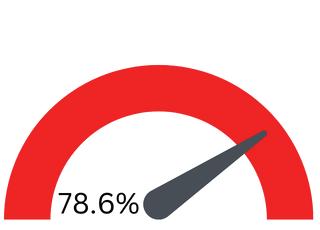
work [during football] so I am not too far behind, especially with [how] fast I have to go with the [basketball] season coming up.”
e girls cross country season, on the other hand, wrapped up on Oct. 22 and the rst girls swim meet is Nov. 21.
“ e transition from cross country to swimming is pretty di cult because swimming is so time-consuming,” said Brown. “I try to run on Sundays during swim season so I am good for track in the spring. Other than that, I just have to do my best until I am fully back to where I was in swimming.”
Regardless of the amount of time in between seasons, recovery is key for all athletes.
All athletes are given a strength and conditioning program provided by the athletic trainer, Josh Jones, and even have access to a training sta led by Bruce Willard.
“Lots of rest is key for recovery,” said Hall. “When I can nd time to stretch and relax, as well as not doing much before and a er practice or games.”
Although Brown started swimming at a younger age, the two sports are too close to compare for her.


“All three of my brothers ran

For 6’1” 175 pound Hall, playing multiple sports came rather naturally compared to others.
“I have been playing football and basketball competitively since I was about six,” said Hall. “I have always been pretty fast and athletic so my parents decided to put me in sports to keep me busy.”
Growing up with an older brother who was also involved in multiple sports, Carroll was adapted to the grind and environment of doing so early on.
“Watching my brother play [football and wrestling] when I was in middle school [inspired me],” said Carroll. “Just wanting to be like him and play [all] his sports.”
Coaches alter recruitment style to fit the times
towleros000@hsestudents.org
with many different methods, to increase excitement towards the sport and grow their skills before they get to high school.
“I think that recruiting young athletes at a younger age is important because it gives them time to figure out what activities they enjoy and what skills they can learn from them,” Vogt said.
The method of recruiting young athletes from middle school to high school has changed over the years for FHS coaches. Most coaches look towards middle and intermediate schools to recruit for their teams.
In a football camp held in March for example, at the clinic, the coaches build enthusiasm for the sport by having the high school athletes help in the clinics to give young athletes in grades 5 through 8 help on techniques and practice on how they could get better by the time they enter high school.
“As of right now, I'm pretty social media based, through Instagram and Facebook, then the rest of [recruitment is] kind of word of mouth,” said diving coach Jimmy Russ.
Due to the increased use of social media, it is more common
that coaches will begin to familiarize themselves with the platforms and try advertising their sport on different apps in order to recruit more students.
“I mostly found out about [the sports] through social media, and my parents telling me stuff they found on Facebook,” freshman member of Color guard Veronica Vogt said.
While most coaches do use social media as a recruitment method, others still use things like websites, signs and t-shirts to spread the word.
“We use the website as our marketing tool as well,” Joseph Keller, head coach of the girl's and the boy's swimming program said, “Sometimes we even have signs, like yard signs that, in August, we'll set out at different places.”
It is essential for FHS coaches to recruit middle school athletes
In many sports, like basketball, color guard, football and volleyball, the coaches not only reach out to young athletes and parents through social media but also use clinics to showcase what the high school sport has to offer. Clinics are in the form of a practice of the sport, where young athletes from different middle schools come to learn about the team and how they interact and meet new people.
“I think clinics are helpful because they give people a chance to find out what sports are about and how much they enjoy doing them,” Vogt said. “It also gives a showcase of skills to the coach and/or peers”
At these clinics, coaches build enthusiasm for the sport by having the high school athletes help in the clinics to give the younger athletes ideas on what they could be when they are in high school.
“You get to see your friends and all those kind of things, so I think the same thing happens with extracurriculars,” Keller said. “They get started and then as they get started, they connect with people. They find a place that they can connect to, then those relationships keep them invested into what they are doing.”

Pickleball emerges as local sport (no, sadly, there is no relation to real pickles)
Tanner Guillot guilltan000@hsestudents.orgSports require people; competition is inherently communal, not just because multiple people will be playing, but also because of fans and spectators. Sports compose a signi cant amount of local culture, and ease of play o en helps a sport develop its fanbase; such an example of a near-universal sport is pickleball.
“It’s appeal and why it’s really engaging, is that it’s a group sport that you can go out with really any of your friends and you don’t need to be really, really good or anything to have a fun time,” said Drew Gavit, history teacher. “It’s a sport you can play with all sorts of ages. You can play with someone who’s 18, someone who’s in their 30’s, or someone who’s in their 60’s.”
Like all sports, pickleball has a history behind it. According to USA Pickleball, the sport’s national governing body, the sport started on one slow Saturday in 1965; three people: Congressman Joel Pritchard, Bill Bell and Barney McCallum, found themselves and their families bored and located an old badminton court. Lacking proper equipment, they settled for playing with ping pong
paddles and a plastic ball. ey found that the ball actually bounced remarkably well on the asphalt surface and thus pickleball had begun. ey would go on to formulate proper rules, heavily based on those of badminton and start establishing proper courts designated to pickleball.
ere is also a reason behind the sport’s name. It was coined by Joan Pritchard, in reference to “pickle boats,” or crews on ships that are haphazardly thrown together, mirroring the creation of the sport.
As the sport grew across the US, it would eventually nd itself in Fishers as well.
Fishers, being a populous city, matches pickleball’s pick-upand-play nature remarkably well. Pickleball is one of the games taught in physical education classes, and many local parks host courts speci c to it. Notably, Roy G. Holland Memorial Park added its courts in fall 2022.




“I would say it’s very prominent [in Fishers],” said Gavit. “I was at college for four years, I was not in Fishers. I just came back this past summer, and I noticed it exploded. Over at Cyntheanne Park, they’ve put in I think eight courts and every Saturday from 8 a.m. to noon,
it’s packed with people.” e sport is not played by every single resident of the city, of course. For some, it is very rare to actually hear of it outside of P.E. However, many agree that the sport is set to grow as the number of courts increase and the sport remains easily accessible.
“I know that having more pickleball courts would de nitely increase my likelihood of playing,” said senior Adrea Pendlum. “I don’t think pickleball is a super popular sport in Fishers right now, but with the addition of pickleball courts I could de nitely see the potential for it to become more popular.”
Overall, while pickleball remains somewhat niche to some, many others play it frequently and regularly see populated courts. With a vast potential audience and many places to play, anyone can give the sport a try and see if it is for them.
“It’s really fun, I just think a lot of people view it as a game for older people who want to stay active, and while that may be true, it’s fun for anyone really, no matter how old you are,” said junior Luke Gabbard. “With the addition of courts at Holland Park, I think it’ll really start to gain some popularity.”
1. Senior Nayoung Jang poses for the crowd during the hal ime show at the football sectional game on Nov. 4.
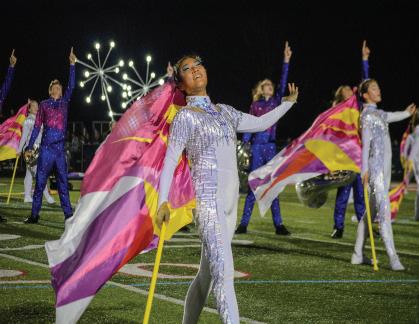
The Fishers Marching Tiger Band has been clawing at success for the past few years, and it is obvious that they are reaping the bene ts of it, with a recent third place nish at Indiana State School Music Association (ISSMA) state nals, with their national competition, Bands of America (BOA) Grand National Championships occurring a week a er.
“State Finals is one of the best nights of the season,” sophomore Vivian Arney said. “Finally getting to see where we stand against other great bands in our state is a great experience. While we like to say it’s not about the competition, it sure is ful lling to see how well we do anyway.”
is reward of third place was no uke, as they proved last year with their third place nish, too. e ISSMA State Finals, as well as the rest of marching band competition days, are labor intensive and sometimes up to 16 hours long.
“I felt super con dent the whole day [of State],” junior drum major Hannah Schultz said. “Everyone was really excited and focused. When we nished warm-ups, I knew we were about to have an amazing
Fishers Marching Tiger Band ends season on high note Emerson Elledge elledeme000@hsestudents.org
performance. Our state run was the most energy I’ve ever seen our band show so far. Everyone was jumping up and down and hugging while we were walking back to the buses and trucks. I was so happy and proud of every marcher when I heard our name called for third place. I heard our score later that night and I realized the real potential of this program.”
e marching band spent their entire season learning, developing and enhancing their show for the year. e show is evaluated on two key parts: music and visuals. e music is what is o en thought about when thinking of a band, and is evaluated at both a micro and macro level. Visuals, which involve the overall form and individual timing, are also evaluated on the micro and macro level
1
Preparing for state does not happen overnight. Starting in June, the band spent hours at the school for band camp. June band camp primarily focuses on developing the fundamentals of marching, speci cally for the new members, and preparing for the band to make their yearly debut at the Spark! Fishers Parade.
A er the two-week camp in June, the band takes a few weeks o before coming back for the last two weeks of July. is camp lasts ve days a week, with some days being 11 hours long. July band camp still emphasizes the importance of the fundamental skills of marching, but is also when the band begins to learn their show for the year.
“I’ve had to learn how to manage my time better,” freshman Kate Harvey said. “Marching band takes a lot of hours and I have had to gure out how to manage school and band.”
Every year, the show revolves around a theme, with a storyline being developed around that theme. Past years’ themes include ‘Candyland,’ the ocean, and tigers. According to Schultz, the show this year has a celestial theme, which excites the band.



“Our show this year is called ‘Chasing Starlight,’” Schultz said. “It’s titled as an adventure through space. We have 16 props that have huge, bright lights and galaxy print on them. rough the show, the audience is able to listen to our ensemble, along with a few soloists.”
e soloists tend to be selected from the Wind Ensemble and Wind Symphony, the advanced band classes. e soloists either audition for the part or are asked by a director to perform the solo. However, the band emphasizes that every contribution to the band is equal and worthwhile.
“With marching band, there’s this community that you’re driven around,” junior Dylan Brown said. “[ ere is] teamwork because there is no
bench for marching band. I love the fact that nobody can fail. You have to push your team and you have to build everybody up. It’s a very inclusive environment.”

e marching band ranges from seniors in high school to seventh graders who are called ‘cadets,’ meaning some people in the band have been members for the past ve years whereas others have been involved for the past ve months.














“I’ve learned not to judge a book by its cover [with marching band], which is kind of cliche, but it’s true,” Arney said. “I remember being scared when I heard that we would be gaining 90 new members to the band, [which is] nearly half of the entire band, and to be honest I was even more worried when I rst met them. I was doubtful that they would rise up to the challenge to become excellent, but my expectations have been shattered. I’ve grown to love our new members and watching them grow throughout these few months has been so ful lling to me, and I was wrong to think that they wouldn’t be able to be just as phenomenal as anyone else in our band.”
Members and directors alike
use a family motif to describe the marching band culture, with the logic being that some days a person may not like their family, but will always love them.
“ e culture of marching band doesn’t really change, the people [involved are the ones who] change,” sophomore Kate Armey said. “ e family dynamics may change, but there’s still those dynamics “ e band culture is cited as the reason the band is so great, according to Brown.
“As long as we push ourselves and do our best, we’ll be great,” Brown said.
e marching band has a goal, not for perfectionism, but instead for excellence. is is emphasized by Director Chad Kohler’s popular mantra ‘early is on time and on time is late.’

“I think this year, more than last year, more people are really striving for excellence and are really putting in the e ort to get there,” Schultz said. “Last year, it felt like a lot of people just didn’t get it, but this year it seems that everyone really does understand how important this is for everyone involved. Everyone is really
2
pushing people the themselves that change band’s Grand which “Our Finals junior “Now
pushing themselves and the people around them to be the best possible version of themselves they can be, whether that be just as a person, or as a performer on the eld.” is year a monumental change has occurred with the band’s attitude about BOA Grand National Championships, which took place Nov. 10-12. “Our place in Grand National Finals is less of a question,” junior soloist Mia Noel said. “Now it’s more of ‘where do we place in grandad’s nals?’ which has never been the case.”
e band made history at Grand Nationals making nals for the very rst time in school history. e band ultimately placed tenth nationally, acknowledging the progress the band has made.
e band is set to take a well deserved break before they begin preparing for their 2023 season and follow up performance at the Macy’s anksgiving Day Parade. However, some members of both the band and the guard are still working on their skills with Winter Percussion and Winter Guard.
The esports club consists of 15 boys and two girls, which has prompted the club's newfound goal of gender diversity. e clubs' new sponsor, English teacher Samuel Vorhees, stands behind this goal.
“We had a few [girls] in attendance at the beginning of the year and I was excited about them getting involved just because it's great to have diversity in general,” Vorhees said.
An esport is a multiplayer video game played competitively by spectators. According to femme gaming, an organization that strives to empower female gamers, female esports players only make up 8% of players in college esports arenas.
“I think it's important that students have avenues to get involved and to know that those avenues exist,” Vorhees said.
“It is unfortunate that there are girls out there who do game and want to get involved and don't know about those avenues.”
Club member Luke Trahin thinks that the lack of gender diversity is due to the negative attitude that is received by girls who game.
“A lot of guys grew up with video games but with girls, it was more frowned upon,” said Trahin.


Club president Joseph Michalowicz thinks that it is essential for girls to have representation in gaming as well. While women-only esports tournaments do exist, they do not compare to regular maledominated tournaments in terms of publicity and prize

money, according to British Esports.
“I think gender diversity is important in video games because everyone should feel included and accepted,” said Michalowicz.
Michalowicz started the club in the spring of 2021 with the goal of being in a leadership position. e club was originally shut down because of Covid in 2020, before his freshman year.
“I decided to recreate the club because I had to lead something of some sort for membership in NHS (National Honors Society),” said Michalowicz. “My friends were really talented in games associated with esports, so I thought it would be a fun thing to do with friends.”
e club members are facing new challenges while trying to achieve their goals for this year. Fundraising has been a big part of club meetings, according to Trahin.
“Right now we're in a funding stage,” said Trahin. “Our ideal goal is to get computers, but right now we're not near there.”
Vorhees said the team is also trying to raise money for jerseys that they can wear to tournaments. e club members are raising money this month by serving concessions at Colts games.
“We would love to nd other fundraising opportunities but just haven’t found any that have really suited us just yet,” said Vorhees. “Our hope is to eventually have enough money saved to start purchasing gaming systems for the club that our team members can start using for their tournaments.”

As football players take the eld, they are immediately connected by both environment and energy. e blinding lights illuminate the stands lled with cheering fans. e game draws in people from varied backgrounds and gives them a united goal, to win. Every play is driven by communication and split-second decisions. Each player holds the team to a standard of trust and doing their part of the job.


Trust does not stop at the players, it includes the relationship with the coaches as well. e National Federation of State High School Associations (NFHS) emphasizes that the morals and energy a coach expresses toward players shape the ideals of the group. ey explain that coaches obsessed with winning will generate teams with the same desire and less of a personal relationship. While this mindset may drive the team to play harder, it can also cause more frustration if they do not win. Losing a game could result in con ict between players or decreased con dence in individuals due to the pressure they feel to win. In addition, it could result in players developing a feeling of failure or letting down the team.


Players also have to be aware



of and think about the impact their own attitude has on the connectivity of the team. e mindset of a team is the rst thing that unites them together. Adam Morris with Believe Perform, a company working to strengthen academic and athletic performance through education on the mental aspects, states that if each player is driven by individual goals, they are less likely to succeed than if they are focused on the goals of the whole team. is form of self e cacy can be the root of con ict within the group.
As the football season ends, the focus of senior players starts to shi to colleges. Not only does this change players’ mindsets, but parents also begin thinking about their child’s future in the sport. With split goals, the group’s coherency is impacted. Not only is this changing how individual players are thinking through their jobs but it also changes how players may view each other.



If one player sees that their teammate is focused more on individual success than the team as a whole that could result in con ict or a decreased level of trust. As found in a study by Kinesiology professors, Albert Carron and Lawrence Brawley, without strong coherency there is less communication and
overall success. is could lead to di cult practices or even trouble working together on the eld at games. It can also cause disruptions in plays that may impact the outcome of games. e existence of coherency does not strip players of having their own goals. A good team relationship does not ask players to sacri ce their success for the team’s. Despite the importance of having a set group goal, it is not an option to stop working towards your own success. e challenge is nding a way to balance your personal goals with the team’s goals. One of the ways to do this is by sharing your goals with the team. When each individual player has goals they are reaching for, that are not in line with the team’s, it can help for everyone to know those individual goals and then help each other reach them.
Past mindset and attitude, working on cohesion or communication is not a task that is done individually. Collective e cacy is derived from an e ort by the program as a whole. Team bonding activities and getting time together outside of practices is really important in creating a strong group relationship. However, you have to be willing to make the changes or else these solutions will not actually have an impact.












The cost of tuition can be a fear-inducing number that is not going to become less frightening any time soon. Students scramble to pad their application with extracurriculars and impressive test scores in the hopes that they will receive scholarships. is can cause excess stress for students who should be more worried about nishing their high school career. e nancial burden of college is something we should be working towards reducing as new generations enter into that phase of their life.

Despite the cost of attending an accredited university being so high, with some students having to take out loans to cover it, schools are continuing to increase their tuition beyond what the economy of our country can handle. According to the Journal of Economic Perspectives, the tuition of undergraduate programs over the past three decades has each year an average of 3.5% more than the rate of in ation.
is means that the economic burden of college is increasing from generation to generation, making a college degree less attainable. ere have been colleges that recognize this and take action against it, with Purdue being a great example. Purdue has had its tuition
 Madelyn Lerew lerewmad000@hsestudents.org
Madelyn Lerew lerewmad000@hsestudents.org
frozen for 11 consecutive years, keeping its in-state tuition at $9,992 a year, and has had no increase in residence hall rates for the past 10 years. If more colleges were to implement programs like this it would prevent the spiraling costs we are seeing.


College comes with an array of costs besides the tuition to the university that must be factored into whether or not a student can a ord to attend. If a prospective college freshman does not have the nancial support to be able to fully pay for this they must turn to student loans in order to earn their degree. e current xed interest rate for federal student loans is 4.99%. is means if a student were to take out loans to cover four years of tuition at Purdue, which would be $39,968, and pay it out over 10 years they would be paying $12,147.92 in interest alone. is makes college more expensive for those who were barely able to a ord it in the rst place.
Student loans put a nancial burden on students when they graduate, making it more di cult for them as opposed to their debt-free peers. ings like buying a house to build equity become less attainable when you are making monthly debt payments. According to

the Journal of Applied Business and Economics, student loan debt can actually increase income inequality. Student loans delay graduates’ transition into nancial security because they have less money to put into savings due to preexisting nancial obligations. While rewarding, a bachelor’s degree has the possibility to turn into a sinkhole of loans for students from lower-income families.
Despite the challenges of attaining a bachelor’s degree, there are massive bene ts when nding employment. According to an article put out by Forbes, those with a bachelor’s degree earn $24,900 more working full-time than those with just a high school diploma. e amount earned is even more when receiving higher levels of education like a masters or doctorate degree. e economical bene ts of receiving a degree past high school are notable and are what make it such a prevalent option, despite the shiny price tag. Earning a degree also provides an opportunity to continue in academia on more specialized subjects. When earning credits toward your major, you get to dive deeper into subjects that are of interest to you. is specialization is vastly di erent from high school which

Rising prices in higher education make it inaccessible to new generations
See yearly cost of attendance below:
Purdue University Instate tuition: $9,992 Room and board: $10,030 Books: $1,010 Total: $21,032

Indiana University Instate tuition: $11,446 Room and board: $12,228 Books: $900 Total: $24,574


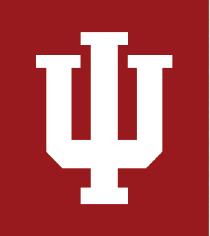


Butler University Tuition: $43,470 Room and board: $15,260 Books: $990 Total: $59,720
Ball State University Instate tuition: $8,434 Room and board: $10,676 Books: $1,344 Total: $20,454
Information from Purdue University, Indiana University, Butler University and Ball State University. provides a more rounded course load, with the college equivalent of general education classes taken as an underclassman.
It is evident that we should be putting more money into providing higher education to all. Not only is it bene cial on a personal level, but it also helps society as a whole. is quote by Martin Luther King Jr. is particularly tting to this ideal: “ e function of education is to
teach one to think intensively and to think critically. Intelligence plus character – that is the goal of true education.” An educated society bene ts all and therefore should be prioritized and made actualized through purposeful legislation. President Biden has made a step towards this with his student loan debt forgiveness program. rough this, you have the possibility of having $20,000 worth of student
loans forgiven. is helps those that have already received their degree with the burden of their debt but does nothing to help prevent my generation from receiving this burden. We need to be taking preventative measures to stop this cycle of indebtedness by granting more federal funding to public universities and by supporting programs similar to Purdue’s tuition freeze.
Congratulations on your acceptance to our university!
‘Marvel’s ‘Black Panther’ directed by Ryan Coogler was a stark new look at what the action movies that made Marvel famous could further develop into. e unparalleled visuals, the new line of heroic characters, the addition of strong female leads and not to mention the impact of being the rst Marvel movie to have an almost entirely Black cast all lead to a lm rich with symbolism and deeper meaning. With the return of these beloved characters on Nov. 11, speculation was only natural as to what was to come and how these attributes would continue to shine at the heart of the production: something especially important due to the untimely and tragic passing of Chadwick Boseman who played T’Challa, the lm’s lead. is squeal in the Black Panther franchise ‘Wakanda Forever’ has been projected to be one of Marvel’s top-grossing lms. is caused many fans to speculate on what this new movie would entail. What had been made clear to audiences was that this movie would work to follow the path paved by the rst lm. is is done in terms of combining traditional African elements with new and more Americanized ones, deep meanings, symbolism and motifs of Black empowerment. is was intentionally done to avoid an overwhelming sense of the longing to be progressive, a trap many movies have fallen captive to in recent years.
Coogler always makes it a point to hide symbolism and deeper meanings in his lms. In the rst lm, color is used to symbolize power, strength and anger within di erent characters. It was also used to subtly highlight the Pan-
Kindell Readus readukin000@hsestudents.org
African colors (red, black and green) in the out ts chosen for our three main characters in a ght scene contrasting the blue used on the villain’s clothes chosen to represent colonization.
What could not have been foreseen was the stunning and standout visuals, new characters, plot lines, and character building that would take place in order to create the second installment that would continue to break the
inspired so many young Black kids, showing them that they could do anything and that they could be the superhero they always dreamed of seeing. Navigating the death of such an important and loved character is a balancing act, one that has been handled with intention and understanding. Boesman’s death was not only mentioned but highlighted, keeping him and his legacy ever present with every tear-jerking mention. Looking to the comics, it was rightly assumed that T’Challa’s sister Shuri (Letitia Wright) would be the one inheriting the title of Black Panther.
Marvel. Once again using symbolism to create a deeper and more enriching lm experience, ‘Wakanda Forever’ nds a way to balance humor and heartache to truly capture what it means to grow as a result of mourning.


Before the release of the lm many questions circulated on who would ll the role of the Black Panther and who would be worthy of stepping into the shoes that Chadwick Boseman le behind. Further, how will they honor Boseman’s legacy not only as a character in the lm but also as the person he was o screen? Boseman and his characters
Black Panther being portrayed by a woman presented an opportunity for widespread debate over whether or not a woman is an adequate choice for the role. Many people say that the Black Panther can only truly be personi ed by a man. However, Marvel strongly disagrees, setting up Shuri’s arc to becoming Black Panther as early as the second comic in 2005; something that would come to fruition years later in volume ve. Now, as we see a female Black Panther grace our screens it has become clear to many that Having a woman, especially a Black woman, portraying a strong, and almost merciless superhero is incredibly powerful for the young girls watching the lm, just as the Dora Milaje, the all-female warrior group, did in the rst lm and continue to do in the sequel. Putting women in such valuable, high up and important positions, shows them as more than symbols of submissive fertility and beauty, the young female audiences what boys have gotten all along: that they are worthy, that they are powerful and that they are more than damsels in distress.

 Katrell Readus readukat000@hsestudents.org
Katrell Readus readukat000@hsestudents.org
ood hair’ is only one of many divisionary labels commonly given out in Black communities, particularly by older members to describe the perceived prestige of straight or loosely curled hair, speci cally when genetically altered or a ected by non-African (most commonly white or European) ancestry. e preference for loosely curled or straight hair is a learned bias that dates back to slavery, in which those with ‘good hair’ and other more preferential features were o entimes the involuntary o spring of their master, thus earning them greater privileges on the plantation and the rightful envy of others. is is in stark contrast to what is o en considered to be ‘bad’ or ‘nappy’ afro-textured hair. is hair type is o en chalked up to be unkept, dirty or unruly, an intolerant narrative that also dates back to actions common during slavery in which white women would o en haphazardly hack o the hair of their enslaved female servants because it supposedly ‘confused is peoplepleasing and antiquated anti-Black

‘Gideology is fueled by arbitrary constructs built upon learned historical bias and the rules of conventional attractiveness: the concept of looking in such a way that falls within the lines of the expected societal idea of good looks.
ose who subscribe to this ignorant ideology, one that breeds separatism of people based on elements of looks speci c to race, have fallen victim to what is referred to as racial hierarchy. Racial hierarchy is the belief that multiracial people are more attractive— what sociologist Jennifer Sims has termed the “biracial beauty stereotype.”

white men.’
A study by sociologist Shawn Bauldry in 2016 resulted in a multitude of ndings regarding attractiveness, among these was that perceived attractiveness heightens a person’s likelihood to achieve social mobility and success, mirroring the way in which biracial slaves were preferred and better treated by their master. Beyond that, Bauldry’s research also identi ed that attractiveness contains a racial component, with Black people serving as the basal of the scale, meaning that we are seen to be the least attractive while white people are considered most alluring. However, racialized attractiveness does not operate in a strict dichotomy, with
all Black people automatically adjudged as unattractive. Instead, it is more systematic. Studies have exhibited evidence that Black people who look more stereotypically Black, (those adorned with darker skin, naturally fuller lips and wider noses) tend to be perceived as less attractive. is same research also shows that those who look ‘more white’: exhibiting lighter skin, thin lips and straighter (less coiled or kinky) hair, are ranked at a higher level of attractiveness by comparison to others of their race. ough traits like those are not mutually exclusive to those of bi/multiracial ancestry, it is with these individuals that these attributes are most commonly associated.
It is societal divisions like these that have led us, the Black community, to further divide ourselves into subsections or pieces of a whole. Hair has and could continue to serve as a tool of empowerment within the Black community, but some of us who are unable to remain unwaveringly in the wind of the hatred our hair has attracted, have been le at odds with what had been a point of pride. e terms ‘good hair’ and ‘nappy hair’ in reference to texture are a testament to that.
As the end of the semester approaches, students prepare for changes in their academic routine

As the seasons begin to transition from fall into winter and the end of the first semester is approaching, this time of year can be extremely stressful for some students who do not react well to changes in their routines. This can be seen in the switch from fall to winter sports or even in goals clubs want to achieve.
The Child Mind Institute conducted research finding that anxiety arises when students start to acknowledge that there are transitions happening simultaneously, primarily when it revolves around school. This can be attributed to the fact that they have gotten used to a schedule for four months and are not used to the sudden change the second semester usually entails. Furthermore, with the switch from fall to winter sports, athletes who play multiple sports need to suddenly change their training and mindsets to prepare for a completely different skill they must tap into for their upcoming sport.

As mentioned previously

in the issue, there is also a transition of school board members that will be occurring in January due to the elections on Nov. 8. This can also be a part of students’ stressors since they are more than aware that different policies can pass to change their school experience.
The Child Mind Institute also mentioned that students may not be stressed about the actual transition between things like sports and classes as they are about having to face the unknown. For example, students who have semester classes do not know what to expect when they go into an ultimately different class in the middle of their school year. This can throw them off and cause them to stress over school in general.
While there are positive adjustments that can help students thrive, such as the transition into the holiday season, it can still have a negative impact when it comes to how well students do in the school environment. The holiday season can produce

serotonin for students and motivate them to work hard with their new-found positivity or, according to Youth First, it can cause students to get lazy as they await their breaks.
On the contrary, the University of the People found that, overall, the transition from one semester to another can cause students’ stress levels to go down. This is due to the fact that some students long for a fresh start, especially when it comes to their grades. A student may get a feel for all their classes and the difficulty of it the first semester and utilize the second semester to get into the groove of their classes and succeed to their fullest.
We need to keep in mind that we have achieved so much in the past couple of months and need to continue putting as much effort into the final stretch. While the switch to the second semester can be overwhelming, we need to continue to remind ourselves that we will eventually get used to it and the transition will ultimately end up being a
Do you think transitions in a school setting is hard to adapt NoThe start of snow falling signi es the end of autumn and beginning of winter. This reminds the students that the end of the semester is approaching. Photo by Malak Samara.
Tiger Topics Tiger Times is the official monthly newsmagazine of Fishers High School. It is distributed free to approximately 3,700 students and over 300 student personnel. It is designed, written and edited by students.
Opinions expressed in the newsmagazine do not necessarily represent those of the adviser, administration or staff.
Letters to the adviser may be submitted to A218, and must contain the writer’s phone number for verification. Letters to the editor will not be published anonymously. If there is any incorrect information, corrections will be made in the next issue.
As the student-run newsmagazine of FHS, Tiger Times is dedicated to providing the staff, students and community of FHS with a timely, entertaining and factual publication once a month by means of public forum. In publishing articles that students enjoy reading, we are furthering both educational experience and the expansion of FHS culture. The staff works to create a sense of unity and awareness and allow the students of FHS to have better insight to the world around them.





































